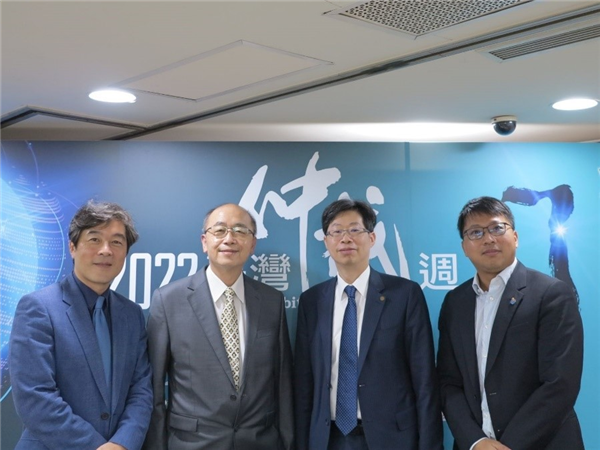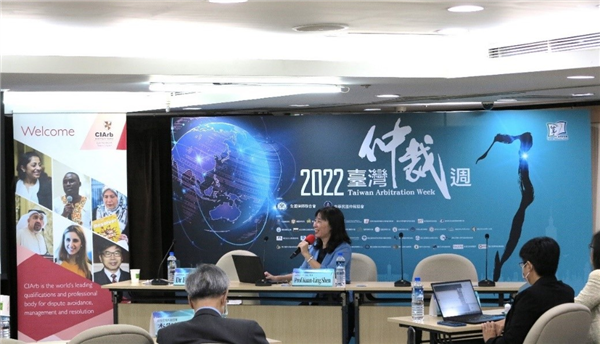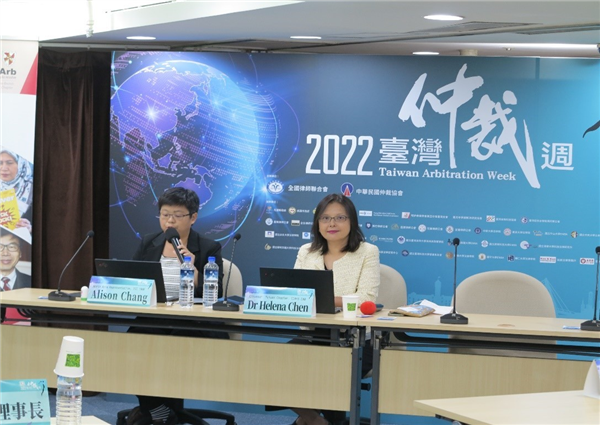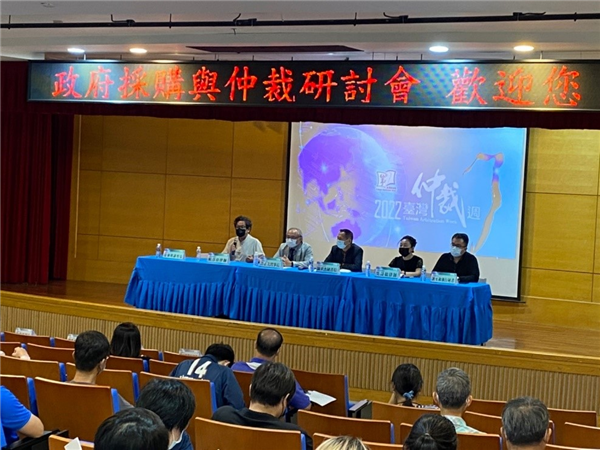回上
一頁
一頁

中華民國111年10月
Oct. 2022
Oct. 2022

10月4日研討會(仲裁協議效力/專家證人/政府採購與仲裁)Seminars on October 4 (The Effectiveness of Arbitration Agreement/Expert Witness/Government Procurement and Arbitration)
「仲裁協議之效力是否及於非締約之第三人:以臺灣離岸風電開發運維之特設機構(SPV)為例」
Does Arbitration Agreement Bind Non-signatories?:Take SPV of Taiwan Offshore Wind Power Operation As An Example
本場次由最高法院前法官鄭傑夫先生主持,其表示離岸風力發電之設置、工程、營業、監督、登記及管理事項,所牽涉當事人及法律關係錯綜複雜。仲裁協議依契約相對性原則,對第三人本不生效力,但離岸風力發電事業經常牽一髮而動全身,實有集團解決爭議之必要。因此如何使仲裁協議效力及於非協議之第三人、仲裁判斷對於第三人如何強制執行、如何保障第三人程序利益等問題,因現行法律並無相關規定,因此需要更多法理基礎為依據。
As the moderator, the former Judge of Supreme Court Mr. Je-Fu Cheng stated that complicated legal relationships and disputes arise from the installation, construction, operation, supervision, registration and management of offshore wind power project. According to the privity of contract, the arbitration agreement is ineffective to third parties. However, the nature of offshore wind power project demands group dispute resolution. Therefore, it requires more legal foundation, in the absence of relevant provisions of law, in order to regulate the enforceability of arbitration agreements and arbitral awards, as well as the protection of due process, in relation to third parties.
報告人Ms. Kyongwha Chung指出,離岸風電是一個非常大的工程專案,既然有這麼多的參與者,就可能發生問題,也會產生不同的風險。這時要如何確保在仲裁協議以外的相關第三方也進入仲裁,或者相關的爭議可以有效整合解決,以避免片面或互相衝突的仲裁判斷。她分別以國際仲裁上的法律機制、國內法及仲裁機構的仲裁規則所允許的程序機制三個面向,探討當事人追加及仲裁合併,讓仲裁協議的效力可以及於第三方。
The panelist Kyongwha Chung reiterated the enormity and complexity of offshore wind power projects involving numerous parties and therefore potential problems and risks. In order to avoid incomplete or inconsistent arbitral awards, it is important for arbitration to ensure participation by relevant third parties and resolution of related disputes. She discussed how joinder and consolidation of arbitration may extend the effect of arbitration agreement to third parties from three perspectives: international arbitration system, domestic laws, and institutional arbitration rules.
三位與談人則分別表示,上述問題還是應以個案來判斷,而例外的情況,依照仲裁法或仲裁機構的仲裁規則,非簽署仲裁協議之人也有可能是變成仲裁進行當中的一造。
The panelists stated that the above issues should be determined on a case-by-case basis. In exceptional circumstances, the non-signatory can be made a party to the arbitration in accordance with the applicable arbitration law or institutional rules.

(左起)黃璽麟律師、鄭傑夫前法官、陳鵬光律師、郭厚志律師
(From the left) Attorney Shilin Huang, former judge Je-Fu Cheng, attorney Peng-Kwang Chen and attorney H. C. Kuo
「Party-appointed Expert in International Arbitration」
國際仲裁中當事人指定的專家證人
該場研討會首先由台灣大學法律系沈冠伶教授就國內法制部分,即商業事件法中所增設專家證人的規範作介紹,同時援引英國民事訴訟規則中的相關規定。沈教授也分享其曾於一台灣仲裁判斷於香港聲請執行,為一方當事人聘為專家證人的自身經驗。
Professor Kuan-Ling Shen of College of Law National Taiwan University began the seminar by introducing the expert witness provisions in Taiwan Commercial Case Adjudication Act and Civil Procedure Rules of UK as reference and comparison. She also shared her experience of being appointed by one party to be an expert witness in a case that sought to enforce a Taiwanese arbitral award in Hong Kong.

沈冠伶教授Professor Kuan-Ling Shen
與談人Mr. Chris Clark (Ankura Consulting, APAC), Mr. David Holloway (Barrister, Outer Temple Chambers) 及 Mr. Glenn Haley (CIArb East Asia Branch, Regional – non-PRC Chair, Bryan Cave Leighton Paisner LLP (Hong Kong)) 分別從國際仲裁實務中專家證人、仲裁庭及代理人的角度進行與談。
As the panelists, Mr. Chris Clark (Ankura Consulting, APAC), Mr. David Holloway (Barrister, Outer Temple Chambers) and Mr. Glenn Haley (CIArb East Asia Branch, Regional–non-PRC Chair, Bryan Cave Leighton Paisner LLP (Hong Kong)) discussed the different perspectives of expert witness, arbitral tribunal and counsel respectively.
Mr. Clark的與談內容著重於工程遲延爭議的範疇,他提及若欲聘請專家證人,主要需考量其專業、提供的文件、事實範圍與費用等不同面向,並具體提出專家證人於實務上程序進行的方式。同時,他也就專家證人程序進行中的”Hot Tubbing”加以介紹,以及其形式上偏向交叉詰問模式的改變。Mr. Haley則以仲裁庭的角度,首先辨明由當事人指定(傳統上為英美法系)與由仲裁庭指定(傳統上為大陸法系)專家證人的不同,並說明當今國際仲裁實務則將兩者結合。Mr. Haley的與談著重討論專家證人的公正性;而目前國際上就該部分僅有軟法的規定,例如IBA Rules, IBA Guidelines and CIArb Protocol;他認為仲裁庭於斟酌專家證人所提出之證據資料時,得將公正性與獨立性併予考量。Mr. Holloway則從代理人的角度建議應慎選專家證人,並且審慎拿捏專家證人與代理人團隊之間的關係。他也具體論及於聽證程序中,如何協助專家證人準備,及交叉詰問時應避免開放式的問題、過於激進等注意事項。
Mr. Clark focused on construction delay disputes. The key considerations for engaging an expert include expertise, documentation, the scope of issue and fees. Explaining how expert witnesses proceed in practice, he also introduced ‘hot tubbing' and its variations towards cross-examination. From the arbitral tribunal's point of view, Mr. Haley clarified the distinction between party-appointed experts (common law tradition) and tribunal-appointed experts (civil law tradition), as well as their combination in international arbitration practice. He emphasized the impartiality of experts, and the relevant soft law instruments such as the IBA Rules, IBA Guidelines and CIArb Protocol. In his opinion, the arbitral tribunal may consider the impartiality and independence of experts when evaluating their evidence. From the counsel's perspective, Mr. Holloway suggested caution in the selection of experts and the management of teamwork between experts and counsels. He provided specific examples of how to assist the experts in the hearings, and how to avoid open questions and over-aggressiveness during cross-examination.

ICC YAAF北美代表張詩芸律師(左)、特許仲裁學會東亞分會臺灣支會會長陳希佳律師
Attorney Alison Chang, North Asia Representative, ICC YAAF (left) and Dr Helena Chen, Convenor, Taiwan Chapter, CIArb
「政府採購與仲裁」
Government Procurement and Arbitration
本研討會吳詩敏律師從政府採購法第85條之1第二項先調後仲該機制的修法歷程及理由、法定要件、機關和廠商如何因應或看待該機制、行政院工程會所訂有益該機制的條款、依該項聲請仲裁時應留意哪些事項、機關常見疑問、其他單位就該機制的建議等重點先後作精彩的說明。
As the presenter, Ms. Meggie Wu (attorney-at-law)addressed various issues including: the legislative history, rationale and legal imperative of the med-arb provision in paragraph 2, Article 85-1, Government Procurement Act; , how government entities and suppliers should perceive and accommodate med-arb;, the provisions prescribed by the Public Construction Commission of the Executive Yuan which are beneficial to med-arb (and the noteworthy items when submitting to arbitration pursuant to these articles; the FAQs from government entitles and the suggestions by other stakeholders.
隨後,國立東華大學副校長徐輝明、花蓮縣政府採購申訴審議委員會執行秘書謝至和、華嚴法律事務所主持律師賴淳良律師等與談人分別從工程實務、申訴會的功能和角色、先調後仲的仲裁範圍等面向提供意見。
The panelists, Mr. Hui-Mi Hsu (Vice President of National Dong Hwa University), Mr. Chih-Ho Hsieh (Complaint Review Board for Procurement of Hualien County Government), Mr. Chun-Liang Lai (Lai & lai) provided their views from the perspectives of construction practices, the function and role of complaint review board, and the scope of med-arb.

研討會會場 The seminar
As the moderator, the former Judge of Supreme Court Mr. Je-Fu Cheng stated that complicated legal relationships and disputes arise from the installation, construction, operation, supervision, registration and management of offshore wind power project. According to the privity of contract, the arbitration agreement is ineffective to third parties. However, the nature of offshore wind power project demands group dispute resolution. Therefore, it requires more legal foundation, in the absence of relevant provisions of law, in order to regulate the enforceability of arbitration agreements and arbitral awards, as well as the protection of due process, in relation to third parties.
報告人Ms. Kyongwha Chung指出,離岸風電是一個非常大的工程專案,既然有這麼多的參與者,就可能發生問題,也會產生不同的風險。這時要如何確保在仲裁協議以外的相關第三方也進入仲裁,或者相關的爭議可以有效整合解決,以避免片面或互相衝突的仲裁判斷。她分別以國際仲裁上的法律機制、國內法及仲裁機構的仲裁規則所允許的程序機制三個面向,探討當事人追加及仲裁合併,讓仲裁協議的效力可以及於第三方。
The panelist Kyongwha Chung reiterated the enormity and complexity of offshore wind power projects involving numerous parties and therefore potential problems and risks. In order to avoid incomplete or inconsistent arbitral awards, it is important for arbitration to ensure participation by relevant third parties and resolution of related disputes. She discussed how joinder and consolidation of arbitration may extend the effect of arbitration agreement to third parties from three perspectives: international arbitration system, domestic laws, and institutional arbitration rules.
三位與談人則分別表示,上述問題還是應以個案來判斷,而例外的情況,依照仲裁法或仲裁機構的仲裁規則,非簽署仲裁協議之人也有可能是變成仲裁進行當中的一造。
The panelists stated that the above issues should be determined on a case-by-case basis. In exceptional circumstances, the non-signatory can be made a party to the arbitration in accordance with the applicable arbitration law or institutional rules.

(左起)黃璽麟律師、鄭傑夫前法官、陳鵬光律師、郭厚志律師
(From the left) Attorney Shilin Huang, former judge Je-Fu Cheng, attorney Peng-Kwang Chen and attorney H. C. Kuo
「Party-appointed Expert in International Arbitration」
國際仲裁中當事人指定的專家證人
該場研討會首先由台灣大學法律系沈冠伶教授就國內法制部分,即商業事件法中所增設專家證人的規範作介紹,同時援引英國民事訴訟規則中的相關規定。沈教授也分享其曾於一台灣仲裁判斷於香港聲請執行,為一方當事人聘為專家證人的自身經驗。
Professor Kuan-Ling Shen of College of Law National Taiwan University began the seminar by introducing the expert witness provisions in Taiwan Commercial Case Adjudication Act and Civil Procedure Rules of UK as reference and comparison. She also shared her experience of being appointed by one party to be an expert witness in a case that sought to enforce a Taiwanese arbitral award in Hong Kong.

沈冠伶教授Professor Kuan-Ling Shen
與談人Mr. Chris Clark (Ankura Consulting, APAC), Mr. David Holloway (Barrister, Outer Temple Chambers) 及 Mr. Glenn Haley (CIArb East Asia Branch, Regional – non-PRC Chair, Bryan Cave Leighton Paisner LLP (Hong Kong)) 分別從國際仲裁實務中專家證人、仲裁庭及代理人的角度進行與談。
As the panelists, Mr. Chris Clark (Ankura Consulting, APAC), Mr. David Holloway (Barrister, Outer Temple Chambers) and Mr. Glenn Haley (CIArb East Asia Branch, Regional–non-PRC Chair, Bryan Cave Leighton Paisner LLP (Hong Kong)) discussed the different perspectives of expert witness, arbitral tribunal and counsel respectively.
Mr. Clark的與談內容著重於工程遲延爭議的範疇,他提及若欲聘請專家證人,主要需考量其專業、提供的文件、事實範圍與費用等不同面向,並具體提出專家證人於實務上程序進行的方式。同時,他也就專家證人程序進行中的”Hot Tubbing”加以介紹,以及其形式上偏向交叉詰問模式的改變。Mr. Haley則以仲裁庭的角度,首先辨明由當事人指定(傳統上為英美法系)與由仲裁庭指定(傳統上為大陸法系)專家證人的不同,並說明當今國際仲裁實務則將兩者結合。Mr. Haley的與談著重討論專家證人的公正性;而目前國際上就該部分僅有軟法的規定,例如IBA Rules, IBA Guidelines and CIArb Protocol;他認為仲裁庭於斟酌專家證人所提出之證據資料時,得將公正性與獨立性併予考量。Mr. Holloway則從代理人的角度建議應慎選專家證人,並且審慎拿捏專家證人與代理人團隊之間的關係。他也具體論及於聽證程序中,如何協助專家證人準備,及交叉詰問時應避免開放式的問題、過於激進等注意事項。
Mr. Clark focused on construction delay disputes. The key considerations for engaging an expert include expertise, documentation, the scope of issue and fees. Explaining how expert witnesses proceed in practice, he also introduced ‘hot tubbing' and its variations towards cross-examination. From the arbitral tribunal's point of view, Mr. Haley clarified the distinction between party-appointed experts (common law tradition) and tribunal-appointed experts (civil law tradition), as well as their combination in international arbitration practice. He emphasized the impartiality of experts, and the relevant soft law instruments such as the IBA Rules, IBA Guidelines and CIArb Protocol. In his opinion, the arbitral tribunal may consider the impartiality and independence of experts when evaluating their evidence. From the counsel's perspective, Mr. Holloway suggested caution in the selection of experts and the management of teamwork between experts and counsels. He provided specific examples of how to assist the experts in the hearings, and how to avoid open questions and over-aggressiveness during cross-examination.

ICC YAAF北美代表張詩芸律師(左)、特許仲裁學會東亞分會臺灣支會會長陳希佳律師
Attorney Alison Chang, North Asia Representative, ICC YAAF (left) and Dr Helena Chen, Convenor, Taiwan Chapter, CIArb
「政府採購與仲裁」
Government Procurement and Arbitration
本研討會吳詩敏律師從政府採購法第85條之1第二項先調後仲該機制的修法歷程及理由、法定要件、機關和廠商如何因應或看待該機制、行政院工程會所訂有益該機制的條款、依該項聲請仲裁時應留意哪些事項、機關常見疑問、其他單位就該機制的建議等重點先後作精彩的說明。
As the presenter, Ms. Meggie Wu (attorney-at-law)addressed various issues including: the legislative history, rationale and legal imperative of the med-arb provision in paragraph 2, Article 85-1, Government Procurement Act; , how government entities and suppliers should perceive and accommodate med-arb;, the provisions prescribed by the Public Construction Commission of the Executive Yuan which are beneficial to med-arb (and the noteworthy items when submitting to arbitration pursuant to these articles; the FAQs from government entitles and the suggestions by other stakeholders.
隨後,國立東華大學副校長徐輝明、花蓮縣政府採購申訴審議委員會執行秘書謝至和、華嚴法律事務所主持律師賴淳良律師等與談人分別從工程實務、申訴會的功能和角色、先調後仲的仲裁範圍等面向提供意見。
The panelists, Mr. Hui-Mi Hsu (Vice President of National Dong Hwa University), Mr. Chih-Ho Hsieh (Complaint Review Board for Procurement of Hualien County Government), Mr. Chun-Liang Lai (Lai & lai) provided their views from the perspectives of construction practices, the function and role of complaint review board, and the scope of med-arb.

研討會會場 The seminar
如您不希望收到本報信息,請點選取消訂閱仲裁報。
If you do not wish to receive this newsletter, please click HERE.